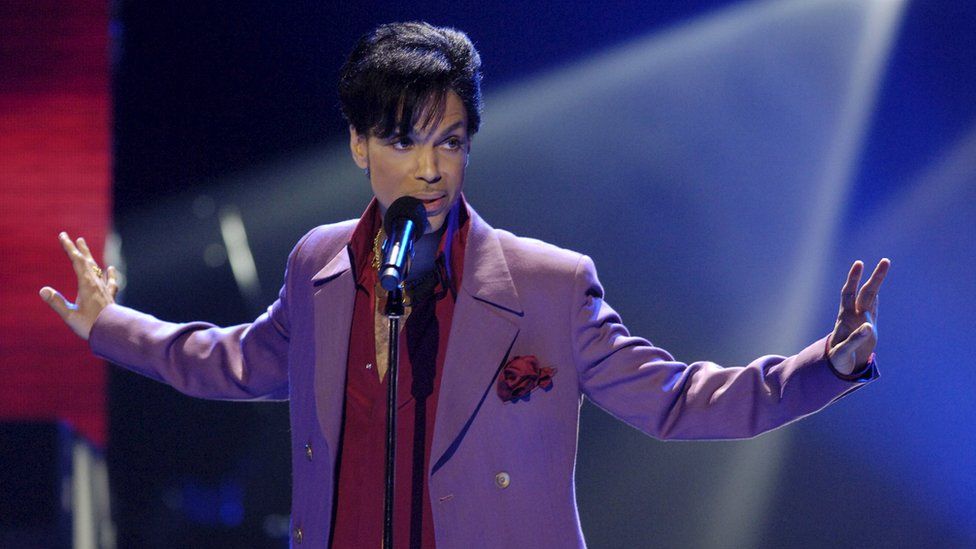Prince death: Search warrant issued at musician's home
- Published

A search warrant was obtained in relation to the home of Prince shortly after he died, court documents show.
The musician's Minneapolis home and recording studio, Paisley Park, was searched on 21 April, the day he died.
But authorities won a court order on Thursday to keep the warrant sealed, arguing that making it public would hamper their work.
Prescription painkillers were in the singer's possession following his sudden death, officials tell US media.
But it is unclear what role, if any, those drugs may have played.
A law enforcement official confirmed to The Associated Press investigators are looking into whether Prince died from a drug overdose and whether a doctor was prescribing him drugs in the weeks before his death.
They are also looking at whether a doctor was on a plane that made an emergency landing in Illinois less than a week before the singer died. He was taken to a hospital in Illinois, but was treated and released a few hours later.
Investigators are also looking into what kind of drugs were on the plane and at Prince's Paisley Park estate where he was found dead.
On Thursday, Carver County Deputy Sheriff Jason Kamerud said reports the Drugs Enforcement Agency (DEA) had been called in were not accurate.
A post-mortem last week discounted suicide - but a medical examiner said full results could take several weeks.
There was no sign of trauma on the body, Sheriff Jim Olson said, suggesting the singer had died alone.
There have been suggestions the star was addicted to the painkiller Percocet, which he had been taking since 2009 to relieve hip pain.
His former percussionist, Sheila E, told the news agency Prince had suffered the effects of years of jumping off speakers on stage while wearing high heels.
However, claims of drug dependency have been refuted by the singer's long-time lawyer, L Londell McMillan.
Although Mr McMillan admitted that Prince may have taken pills to manage pain, he said the musician was "not on any drugs that would be any cause for concern".
- Published22 April 2016
- Published24 April 2016
- Published21 April 2016
- Published21 April 2016
- Published22 April 2016
- Published22 April 2016